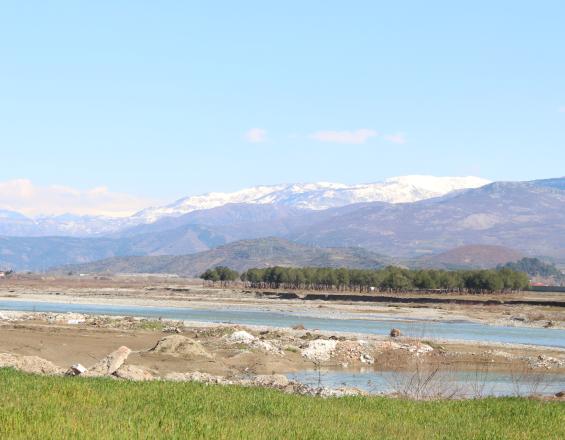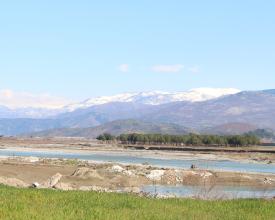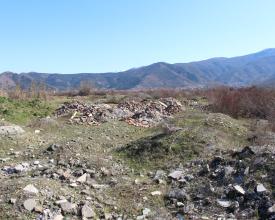
Recommendations for an NbS pilot intervention in Elbasan Municipality, Albania, defined through the NbS Baseline Assessment of the Shkumbini River basin

The Municipality of Elbasan faces various environmental challenges with significant impacts on livelihood, infrastructure and biodiversity.
In order to tackle these challenges, recommendations for an Nature based Solution (NbS) pilot intervention in Elbasan Municipality have been defined based on the NbS Baseline Assignment. The process included consultations with relevant stakeholders, identification of potential sites for implementing pilot NbS measures, and a multidisciplinary assessment.
The Baseline Assessment covered the topics of water management, biodiversity, and socio-economic and gender inclusiveness. Based on collected data and information, the assessment identified the Gurra catchment within the Shkumbini River basin, as the most appropriate location for the implementation of NbS measures.
The Baseline Assessment suggest two types of NbS interventions for the Gurra catchment:
- restoration of the forest landscape, and
- regulation of flow and excessive transport of sediment using check-dams.
Impacts
The NbS Baseline Assessment in Elbasan Municipality enabled data collection and analysis on the state of biodiversity and ecosystems, socio-economic context, gender inclusiveness and current environmental policy. Different local and national stakeholders were consulted at each stage of the process to ensure that their needs and expectations are considered and reflected in the analysis. They identified the environmental targets to be addressed: mitigation of floods and soil erosion, reduction of water pollution, and enrichment of ecosystems and biodiversity.
The information gathered during these consultations, combined with a multi-disciplinary expert analysis, enabled identification of the priority zone for implementation of NbS measures: the Gurra catchment in the area of the village of Shushica. The proposed NbS measures will contribute to protection and safeguarding of some 150 hectares of productive agricultural land adjacent to the Shkumbini River that floods regularly. The intervention will decrease the torrential flow intensity, thus eliminating intensive erosion and preventing sediment transport and its accumulation along the Shkumbini River.
Strong stakeholder engagement ensured a broader understanding of the NbS concept amongst the local community and stakeholders, thus improving acceptance and local ownership over the proposed NbS intervention.





